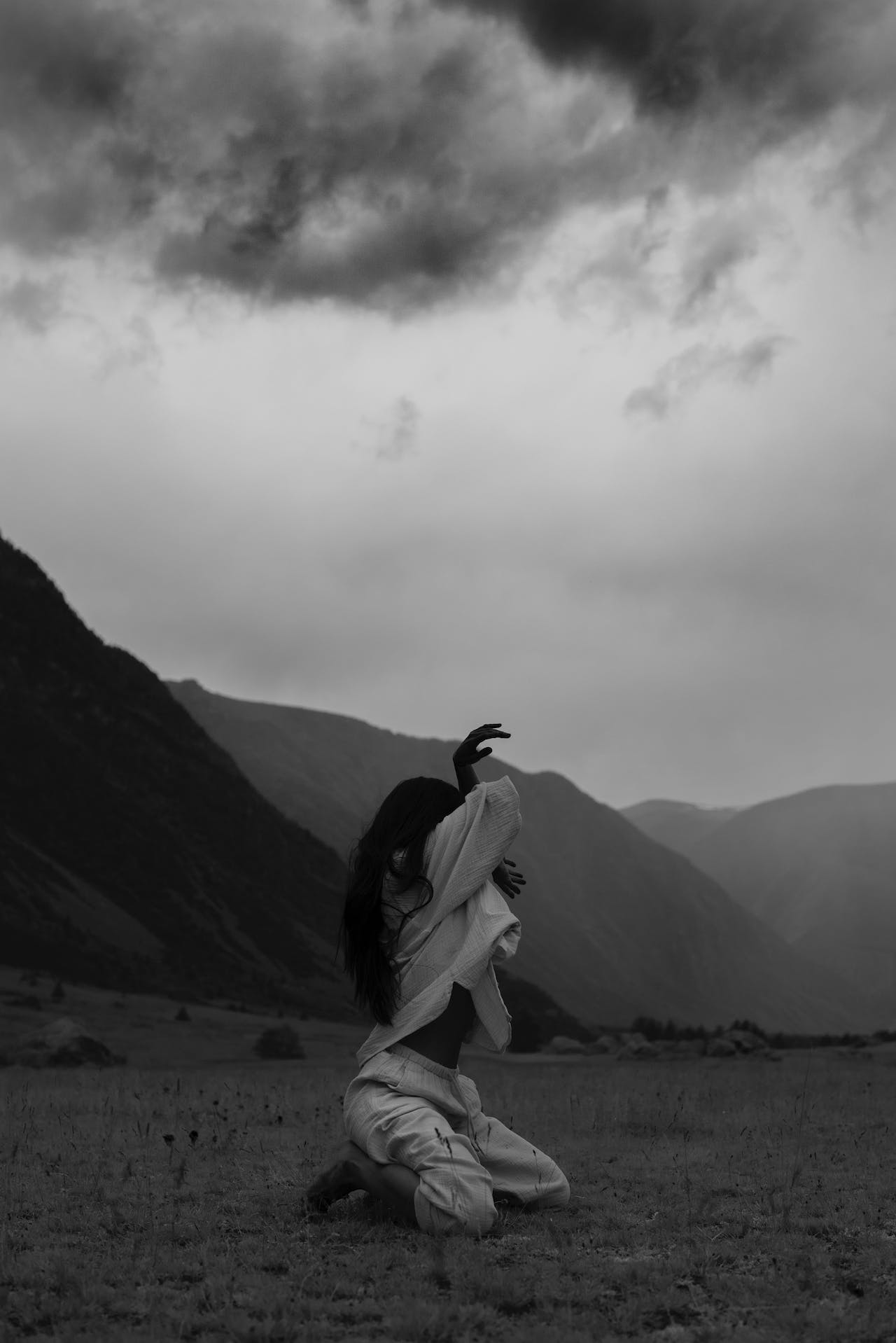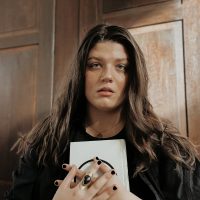
It is maddening to feel as if you are the only one noticing that the house you’re in is burning.
Especially when that house includes the rest of the world.
There’s a saying I’ve been leaning into recently. It goes something along the lines of: “Once you go forward, you can never go back.”
And I feel like collectively that’s where we are at. We cannot go back.
After witnessing mass destruction, death, and intense grief, it can often seem impossible to return to “normal.” Even more so when an awareness emerges that this cycle seems to get repeated again and again.
It’s not to say that we cannot revisit our old lives. It’s that when we do so, we may find that we do not fit into them as neatly as we once did. In fact, we may even have a moment in which we cannot fathom how we once lived in those realities at all.
Fall and winter are great reminders of how we are meant to go through times of loss. The loss of light, loss of harvest, even the death of our old selves. The world darkens and becomes light again with longer days in the summer. The shift into winter forces us into moments of stillness, forces us to confront our resistance to them. Without the shift of seasons, the natural world would collapse. Things are not the same as they were and can never quite return, but nature moves forward with these changes again and again.
Although we are also part of the natural cycles, as a collective, we are being thrust into an incredible amount of change. Like the world is accelerating. (I actually think a physicist proved that we are literally spinning a couple milliseconds faster than ever before.) And along with this acceleration, it seems that we are forced to endure an unending amount of horrors at every turn. Thousands of murdered and displaced peoples, pervasive and insatiable greed, mass theft, violence, hatred, and maybe most horrific of all?
A general societal apathy for the darkness in our world.
Maybe it’s because we’ve learned it was a neighbor or a friend who set the house on fire. Or that a crowd has gathered to watch it burn. Or maybe, it seems as if we had a part in lighting the match.
For some, it’s starting to feel like:
“Hey, I never signed up for this.”
“Why is it my job to protect/stand up for/speak out against…?”
“Can’t I just live a normal life?”
But “normal” life becomes splintered in the context of tragedy. The rituals of modern society create a sort of terrifying fun-house effect, with Black Friday ads popping up in juxtaposition to a post about a body count in the maze of social media. Thousands shopping for presents while some retailers hope they will survive this economy; many more on both ends unable to afford rent let alone gifts. Memes normalizing the ugly state of the world while some make videos about their luxurious getaways. Holiday gatherings on one side of the world commencing without a thought of the pain on the other hemisphere.
“We can’t stop living just because someone else is experiencing tragedy” seems to be the common statement. We cannot stop living, but we also cannot pretend tragedy does not exist.
These stark contrasts are clear signs that something in our world has changed, and we indeed cannot go back. The world Pandemic of 2020 had a similar effect, in which some people shifted their awareness to how some cycles of destruction have been constructed by the very systems they are forced to uphold, while others just tried to Netflix the days away.
Some pretty “tough sh*t” to say the least.
No shade to anyone feeling overwhelmed by the state of the world. I too have had days and weeks of feeling incapable of doing anything except for tuning out. We are dealing with things we have never experienced before. It is okay to be a human. It is okay to feel like things are falling apart. They are. They are falling apart so that something new can emerge. When the old no longer exists, there is space for the new. And in the midst of this shift, it can feel impossible to accept this truth.
We need to fully accept our grief for the world in order to change anything about it.
These moments of shock, of processing death and darkness in the world or closer to home, remind us the importance in living. It is necessary to fully embrace the moments of passion, of joy, of beauty, so that we can remember how sacred life is and treat it with reverence. A deep part of the medicine in grieving is realizing how delicate our collective is. Although it seems like much of the world would prefer to remain in ignorance as a sort of protection against the difficulties we all face, there is such potent healing in working through this together.
Yes, there goes those new-agers talking about unity and consciousness again. But what if there is truth in that? It is almost undeniable at this point that no matter how carefully we walk, our ripples echo through the collective. So if we can realize that what we do in fact matters to the rest of the world, would we prioritize dealing with our own sadness and pain as such? Would we choose life over apathy?
We’ve seen how destructive the repression of our pain can be. It is terrifying to stare down the aftermath of death and grief with grace and open arms. It is terrifying to admit we feel hopeless. But in doing so, we can heal the cycles that have held this pain before and empower the collective who are also hurting. We can give space to these dark feelings instead of repressing them, and step out of this season of dying without being followed by grief.
We cannot change what has been done, but we can go forward with the alchemy of our darkness as fire for the future.
~
Please consider Boosting our authors’ articles in their first week to help them win Elephant’s Ecosystem so they can get paid and write more.








Read 3 comments and reply